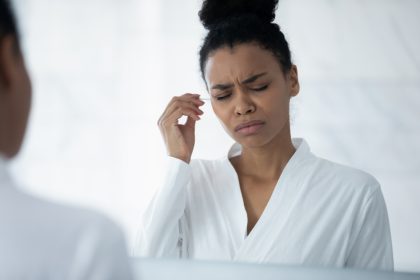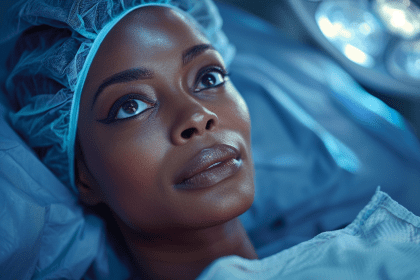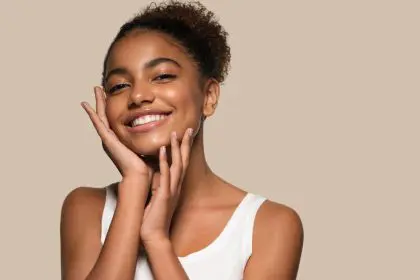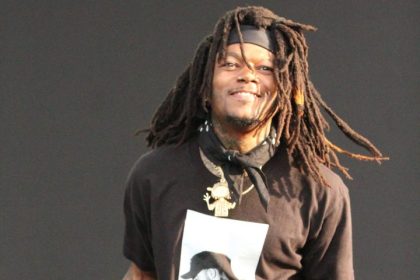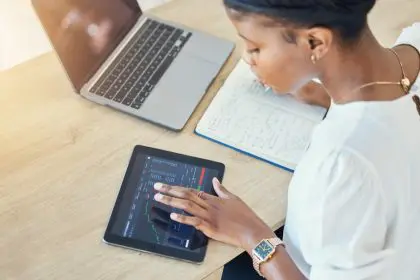Ariane Camille is a licensed professional counselor, emotional wellness coach, and the founder of Emotional Exchange, LLC. With a passion for empowering ambitious, faith-based Black women, Ariane specializes in helping clients navigate mental health challenges, develop emotional intelligence, and build meaningful connections. Known for her engaging workshops and dynamic public speaking, she combines evidence-based practices with practical strategies to inspire personal growth. Ariane also partners with organizations to provide psychoeducation and Employee Wellness Consulting.
As the host of the upcoming Aware Human Summit on Jan. 25 at Culture Lab ATL, Ariane brings her unique expertise to the event, where she will share insights on mental wellness and the importance of individual healing journeys. In an engaging conversation with Rolling Out Health IQ, Ariane discusses how entrepreneurs can transform their self-care approach while building wealth, further solidifying her role as a dynamic force in mental health advocacy.
How did your career path lead you to becoming a mental health professional?
I have been a theater kid. I’ve been a cheerleader. I’ve been a dancer. Entertainment has always been a real passion of mine. I started off as a journalism major in undergrad. I just knew I was going to be the next Oprah Winfrey. Once I started reporting, hitting the pavement, I realized that I was writing my reports about how people felt about being in the accident, and I wasn’t really good at paying attention to the details of the street and the time, and what type of cars or the details of the incident.
And that’s when I kind of knew that I cared a little bit more about the people and what they were experiencing in these experiences, and I pivoted psychology and really just dove into my love for the human brain and the human mind, and I now, as a licensed professional counselor, have been able to mend my two worlds together as a speaker, as a host, as a panelist, bringing psychoeducation to every room that I’m in in a very entertaining fun, Ariane Camille way.
What exactly is psychoeducation?
Psychoeducation is just the education of psychology. I like to bring from breathing techniques mindfulness all the way to the basics, cognitive behavioral therapy, how our thoughts create emotions which then create behaviors in our feet. I like to teach people that we operate top down our minds, our thoughts, our words, that we hear, create emotions in our hearts and our emotions direct where our feet will go. I always tell people to check your feet.
See where you are, if you’re somewhere stuck, check your heart. How are you feeling about that stuckness, and then check in with the thoughts that you’re having to contribute to that stuckness.
Can you elaborate on the Aware Human Summit and its purpose?
The aware brands Drew Sanders, the founder of the aware brand, he really has a passion for mental, emotional well-being as a whole, and he wants people to see their lives from a holistic lens. So there’s going to be yoga and sound bowl before he’s had journalists come in and we do journal prompts, and we have therapists and pastors coming to just pour into the audience and the people who are going to be there.
So the main objective for you to leave is feeling more connected with yourself, more aware of your life. I like to call them your isms, your personal isms that make you, you, and how you’re going to continue to navigate life with the person that you are.
What does being aware mean to you?
Yeah. So to me, it’s like being aware of your gifts being aware of the power of your voice, being aware of what you have to offer. There’s a huge confidence that follows when you are aware of who you are in this world, and what makes you great, and how people value you and how you value yourself. You’re able to set stronger boundaries, and, you know, take bigger risk when you’re more confident in yourself because you’re more aware of your mission, your vision, your drive, your why? So yeah, that’s what it means to be aware to me.
Why do you think Gen Z and millennials are such strong advocates for mental wellness?
I think there’s a mix of things, I think first and foremost, we have a huge exposure to information. We are the most educated generation to come because of technology because of our access, our reach. And I also think that we understand what it looks like for the generations before us not to take care of their mental health from undiagnosed depression, anxiety from schizophrenia to all of those things. Even ADHD, there’s so many diagnoses that have been missed in generations before us, and the consequences of that is childhood traumas that we, Gen Z or millennials, may have faced.
Then I think that we are really taking ownership of where we want our lives to go as adults, and how we want to care for ourselves. We no longer want to be succumbed to the norms of the workforce or societal norms. We really want to change that. And I think that the information that we have and the access has given us the freedom to think differently.
What are essential tools everyone should have in their mental health toolkit?
I would say, decrease the pattern and the habit of urgency. I think we move very quickly in this world, and we take for granted the small moments and interactions with each other, especially as we have moved towards a individualistic society and away from the communal aspects of how you know this country was built, how people of color were built. I think the main tip for your mental health bag would definitely be to slow it down. I tell people to take it easy.
Take it one step at a time. Try your best to not feel like you’re running against the clock with every single thing you do. There is no urgency in all actuality. You can take your time, and I can guarantee you have a huge, positive mental health. Just experience. If you take your time with more things in life.
Why is it crucial for people to prioritize mental health and have access to resources?
I mean one, we don’t really know how certain experiences are going to affect us unless we become more aware. If we choose to, you know, recognize that something in my life is no longer working for me, and once you decide that something in my life is no longer working for me. A lot of people know that things aren’t working, whether that is relationships, whether that is jobs. But they don’t have the resources in the community behind them to figure out a way out.
So you’re right. There’s one hand. It’s like mental health awareness is important. But that awareness can feel debilitating when you don’t feel like there is a way out or something else to do. And that’s why resources are important. That’s why it’s important to highlight the telephone hotlines, and be able to have access to affordable mental health care from community organizations. That’s why it’s important for community organizers like Drew, like myself, like the other panelists, to offer their time to support the community and just having a safe place to land. So resources are pivotal.
What aspects of the mental health conversation are people getting wrong?
That is the easy fix that is a one size fits all. As a licensed therapist I have sat on, I call it the grounds of people’s heartbreaks, and sat with them and lifted them up through different pains and traumatic experiences and past hurt, and it looks different with every person. It doesn’t look the same. And I think that because of the normalization or the welcoming, I wouldn’t even say normalization. That’s kind of a stretch. Everybody’s not eating out of the mental health pot. Okay, but the exposure to mental health conversations does make it seem like there’s a band aid that can fix all things.
And the truth of the matter is that we are all individuals that have our own individual experiences. And we need like individual care. That’s why therapy is so important because you do get to sit with a professional who is licensed, who is degreed, who has experience, and they get the opportunity to curate your healing your journey just for you.
What can attendees expect from the Aware Human Summit?
Yes! Oh, my gosh! You should expect energy, all types of energy. You should expect to enter a space that is safe, that is calm that is welcoming, that is non-judgmental. You should also expect to have laughs, to have joy, to have fun. You should expect to learn something about yourself and your neighbor, you should expect to have big hugs and community and get somebody’s contact number, who’s also on the same journey, because a lot of people who choose to be on the healing journey.
We hear the conversation like, oh, well, I’m the only one in my family that’s going to therapy, or I don’t know how to have these conversations with my friends, because they are on the journey with me, too. We’ll pull up to the Aware brand the Aware Human Summit. Okay? And there’s going to be people in the room that are as committed to their journey, their healing, their self-awareness, as you. So if you are on board, if you’re like. Oh, I don’t know. I kind of wanted to do Sambo, or I kind of wanted to do yoga or journaling sounds good.
Come to the summit. Okay, come and see what it looks like for people to not just talk the talk, but walk the walk, because we are all, all these panelists who are going to be there, all the orchestrators. We are committed to doing the work on ourselves, so that we can also share that with other people. So come on, come on, come on! It’s gonna be fun.







